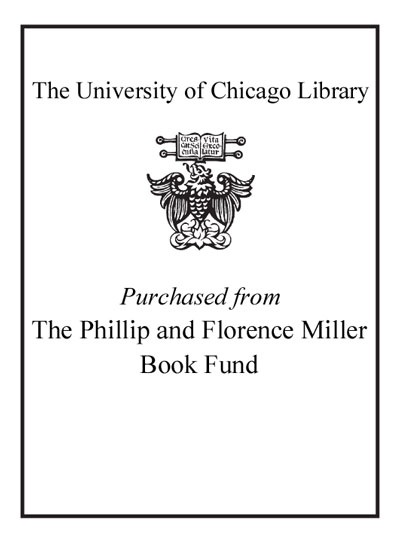Review by Choice Review
Part of everyday language, euphemisms are easily picked up and circulated in conversation with little thought as to how they originated or what they actually mean. Originally published as A Dictionary of American and British Euphemisms (1987), How Not to Say What You Mean is a revision of Holder's A Dictionary of Euphemisms (3rd ed., CH, Nov'96). With a clever new title and over 1,000 new entries that reflect current topics like abortion, drug taking, and sexual variety, this edition contains new American euphemisms like "prairie dogging" (standing up to look over the partition of a workstation). Descriptive quotations accompany the terms, providing an admittedly subjective etymology. Holder's euphemisms are derived mainly from association, literature, and foreign languages. Regional terms are labeled (e.g., "American," "British"). Terms are categorized in the thematic index, which contains such intriguing headings as "Farting," "Mistresses and Lovers," "Urination," "Vulgarisms," and "Warfare." A witty and inexpensive reference work that will delight wordsmiths everywhere, this is an excellent addition, and necessary update, for any reference collection. ^BSumming Up: Highly recommended. General readers; undergraduates. S. Markgren Mount Sinai School of Medicine
Copyright American Library Association, used with permission.
Review by Booklist Review
Holder's collection, first published in 1987, has become the standard reference in the UK. It is preponderantly a British collection, although it includes a number of entries of U.S. origin. He precedes his dictionary with a 74-page thematic index. Among the more noteworthy entries are those identified as medical jargon, a category neglected by most compilers. The collection is marketed in part as a catalog of the vague, coy and roundabout expressions people use to avoid saying what they mean when to say what they mean seems to them cold, blunt, or just a bit too straightforward. Thus, big-boned for fat and let go for fire, implying that the employee is being done a favor. --Cordry, Harold Copyright 2008 Booklist
From Booklist, Copyright (c) American Library Association. Used with permission.
Review by Publisher's Weekly Review
Delightful, quirky and exhaustive, Holder's dictionary of American and British circumlocutions is the kind of reference work that one can spend hours browsing through happily. This third edition includes thousands of alphabetized entries for both old-fashioned and contemporary terms. The term "uncover nakedness," for example, used be a standard Biblical translation for "copulate," though many people wouldn't recognize that use today. (Incidentally, "to line" also meant to copulate, and Holder cites part of Shakespeare's As You Like It as an example of such use: "Winter garments must be lined/So must slender Rosaline.") "Deep six," "underprivileged" and "rip off" still enjoy healthy use, and in Ireland "scuttered" still means "drunk." For Holder, however, this project is about more than just having fun with word games. In fine Orwellian spirit, Holder writes in his introduction that euphemism is "the language of evasion, of hypocrisy, of prudery, and of deceit," which makes it all the more important to be able to see through the embroidery. (Sept.) Copyright 2003 Reed Business Information.
Review by Library Journal Review
With its title change, this third edition of Holder's A Dictionary of Euphemisms seems to emphasize its use as a thesaurus rather than a traditional dictionary, though the main body arrangement remains alphabetical. Holder, a manufacturer by trade and a linguist by avocation, continues to be guided by Fowler's definition of euphemism: "a mild or vague or periphrastic expression as a substitute for blunt precision or disagreeable use." Holder estimates that there are about 1200 new entries, and a quick inspection finds a large number of deletions from the second edition as well. For example, "haul," "have a screw loose," and "have a slate loose" have been deleted, while "head for the hills," "headbanger," and "headlights" have been added. Each entry includes a definition, an illustrative quotation, and cross references when appropriate. Holder has chosen to use interesting quotations rather than the earliest published usage, making this work less scholarly than some dictionaries of word and phrase origins but certainly more browseable. His inclusion of a lengthy thematic index makes the volume work as both a dictionary and a thesaurus of euphemisms. The type and layout are similar to those of the second edition and are just as attractive and easy to read. More extensive than NTC's Dictionary of Euphemisms: The Most Practical Guide to Unraveling Euphemisms and more up-to-date than Facts On File's Kind Words, this work would be a useful addition to all libraries.-Rosanne M. Cordell, Indiana Univ. Lib., South Bend (c) Copyright 2010. Library Journals LLC, a wholly owned subsidiary of Media Source, Inc. No redistribution permitted.
(c) Copyright Library Journals LLC, a wholly owned subsidiary of Media Source, Inc. No redistribution permitted.
Review by Choice Review
Review by Booklist Review
Review by Publisher's Weekly Review
Review by Library Journal Review

